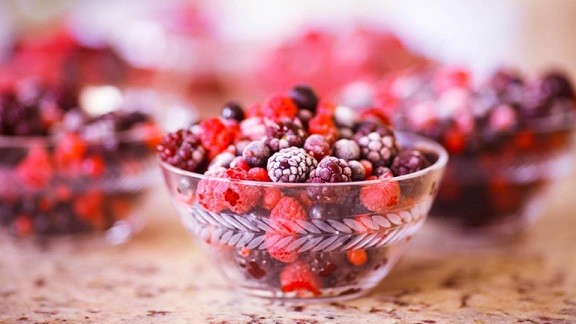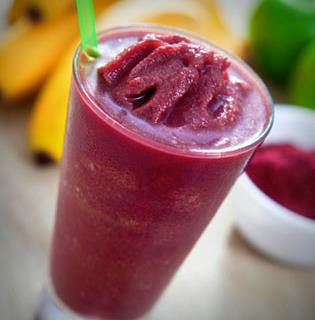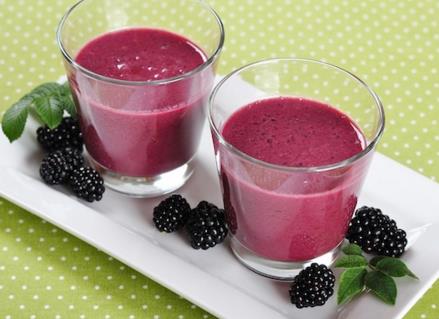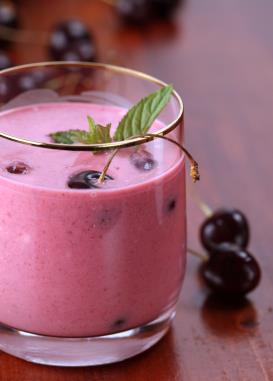A report by Global Industry Analysis suggests that frozen vegetables and fruits will account for more the twenty two million tons of frozen product by the end of 2015. Though frozen fruits are not as popular as frozen vegetables, their sales might go up because of their availability throughout the year and their convenience. However, despite their increasing popularity, some people believe that frozen fruit is not as healthy as fresh fruit available in the market. Is it true?
Is Frozen Fruit Healthy?

Frozen fruit is as healthy as any fruit. The nutritional content of the fruit is not decreased by freezing. What’s more, some of the water soluble vitamins are preserved by freezing. A study carried out with fresh fruits/veggies and frozen fruits/veggies, in which 40 tests were run on the samples, found that in 2 out of 3 cases, frozen veggies and fruits had higher content of beta-carotene, lutein, anthocyanins and polyphenols.
Besides that, frozen fruit is healthy because:
1. They Are Fully Matured
The second a fruit or vegetable is harvested, it starts losing nutritional value. The time difference between harvesting and consumption is vital. Frozen fruits and veggies are allowed to ripen soon after harvesting and then frozen, sofreezing maintains all the antioxidants, minerals and vitamins. On the other hand, fresh fruit is harvested and artificially ripened in transportation tracks before getting to the supermarket. This means they were harvested before getting to their nutritional optimum. Unlike fresh fruit, frozen fruits are produced until the fruits fully matured.
2. They Contain NO Additives
Since freezing preserves the fruits, there is no need for adding anything to a bag of frozen fruits. In most cases, the fruits have no added sugar or salt. Therefore, packages only contain one list of ingredients - the fruit itself. To be certain, always check the ingredients.
3. They Are Quick Healthy Fixes
The best part about frozen fruits and veggies is you do not need to wash, cut or even peel them. This has already been done. After a long day, you do not need to come home to prepare fruits, just grab frozen products. This will encourage you to eat healthy food at home instead of opting for takeout.
Best Recipes to Eat Frozen Fruits
Is frozen fruit healthy? Yes, but what can you do to make it delicious? Here're some excellent recipes to try.
1. Banana and Acai Smoothie
 Ingredients
Ingredients
- 1 banana, chopped into sizable pieces
- 1 tablespoon hemp seeds
- 100 grams, unsweetened Sambazon (frozen) acai smoothie packet (frozen)
- Three quarter cup of water
- Optional: 2-3 pitted dates
Directions: Pour all the ingredients in a blender. Blend until creamy and smooth.
2. Blackberries Smoothie
 Blackberries contain the most oxidants compared to other fruits. Adding them to your smoothie is a great idea. Frozen blackberries can help prevent heart disease, cancer and memory loss.
Blackberries contain the most oxidants compared to other fruits. Adding them to your smoothie is a great idea. Frozen blackberries can help prevent heart disease, cancer and memory loss.
Nutritional value: 1 cup contains 7 grams of sugar, 8 grams of fiber, 62 calories and 50% RDA of vitamin C.
Directions: Combine coconut water, frozen banana, walnuts, lemon zest and frozen blackberries in a blender for a refreshing shake.
3. Cherries Smoothie
 Cherries assist with insomnia and are among the few sources of melatonin. This fruit contains plenty of potassium, and when mixed with chocolate the result is excellent.
Cherries assist with insomnia and are among the few sources of melatonin. This fruit contains plenty of potassium, and when mixed with chocolate the result is excellent.
Nutritional value: 1 cup contains 14 grams of sugar, 2 grams of fiber, 71 calories and 27% RDA of vitamin A
Directions: Blend coconut milk, cacao nibs, frozen banana and frozen cherries and get your delicious cherry Garcia blend.
Tips for Using Frozen Fruit
Is frozen fruit healthy? Yes, but you have to take several things in mind to maximize the benefits you can get from them.
- Frozen fruit does not mean chunks of ice: The integrity of fruits like berries is preserved with their quality and shape maintained. Even wild berries, as small as they are, are frozen individually maintaining their shape and texture throughout the freezing. They maintain their quality for more than 2 years.
- Choose pesticide-free organic over conventional: Major supermarkets have organic frozen vegetables and fruits that face serious price competition from the non-organic frozen fruits and vegetables. You can also get variety in big chain stores like Costco, Whole Foods and Trader Joe's. But remember the organic option is better though it is a bit more expensive.
- Read the label: In most cases, frozen fruits and vegetables are sugar and salt free. However, not all of them are. If you are cutting down on either sugar or salt, ensure you read the label to be sure.
- Avoid long-term storage: After 3 months of storage, the nutritional value of frozen fruits will decrease. It is, therefore, better to purchase what you can consume within this time limit. If you have bought vegetables, break them into smaller quantities before opening.
- Repackage for best results: You can store your frozen fruits and veggies in the bag you bought them in; however, once you have opened it, transfer the remaining content into a plastic zipper bag. This will prevent freezer burn.
